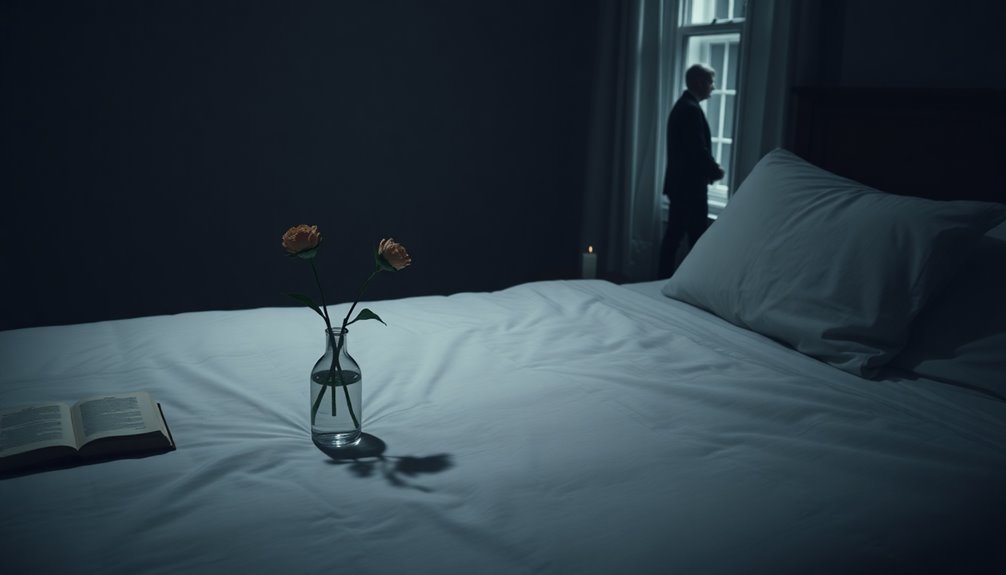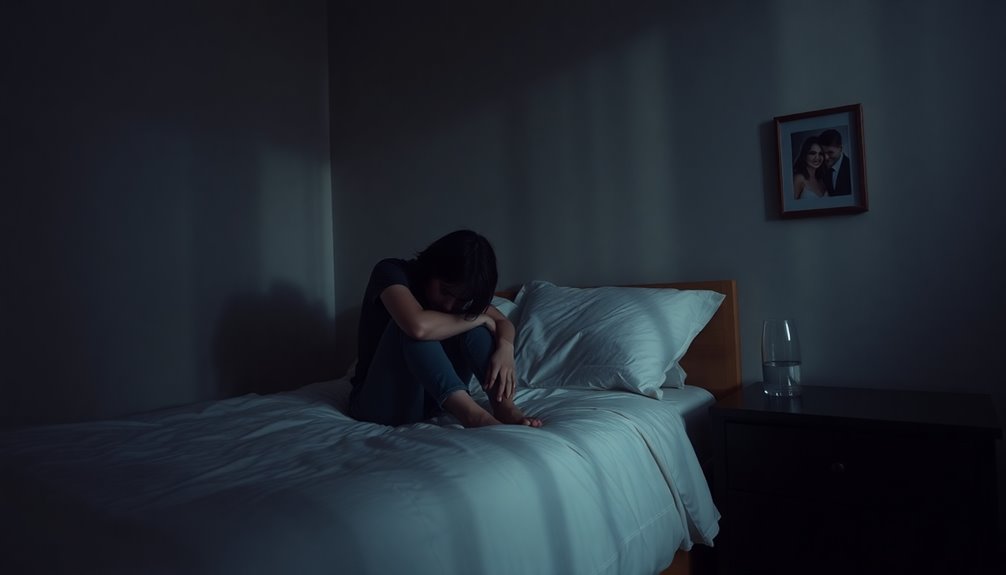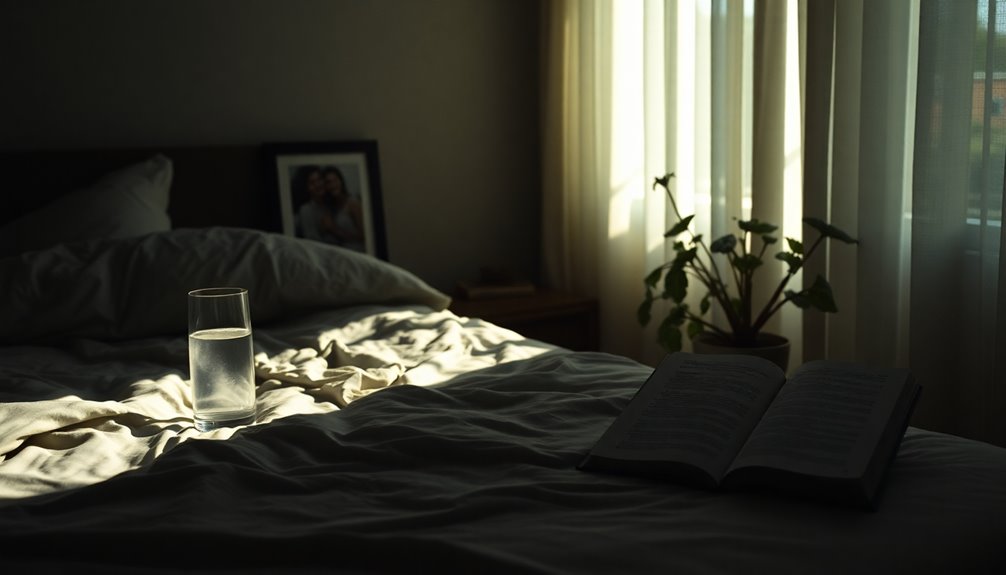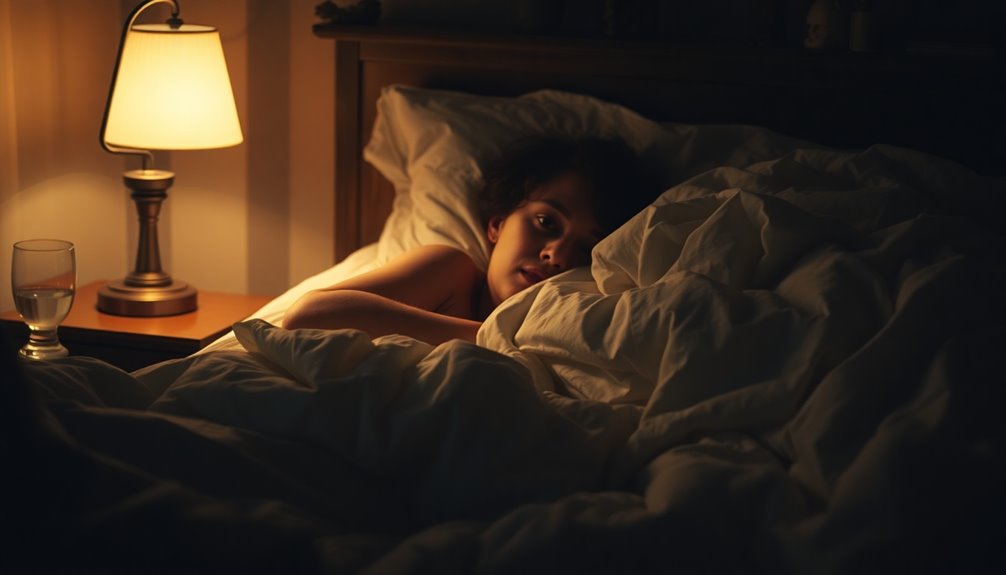If your sex drive is low, you're not alone—many experience this issue at some point in life. Various factors can contribute, including stress, anxiety, and relationship problems, which may dampen your desire. Physical health conditions, such as hormonal imbalances and certain medications, often play a role too. Additionally, emotional factors like depression or trauma can decrease libido. Lifestyle choices, including diet and exercise, also impact your sexual interest. Understanding the root cause is vital for regaining your libido. Discovering effective strategies to improve your situation can pave the way for a healthier, more satisfying sexual life.
Key Takeaways
- Psychological factors like stress, anxiety, and depression can significantly lower your sex drive.
- Hormonal fluctuations due to menopause, pregnancy, or health conditions may disrupt libido.
- Certain medications, especially antidepressants, can negatively impact testosterone levels and sexual interest.
- Lifestyle choices, such as excessive alcohol consumption and smoking, can affect hormone levels and sexual desire.
- Emotional disconnect, unresolved conflicts, or past trauma can hinder intimacy and reduce sexual interest.
Overview of Low Sex Drive

When you notice a decline in your sexual desire, it can be concerning and frustrating. Low sex drive, defined as a significant decrease in sexual interest, can affect anyone at any age and may be temporary or long-lasting.
Understanding the causes of low libido is essential, as they often involve a mix of psychological, biological, and social factors. Stress, anxiety, and relationship issues frequently contribute to low sex drive, while physical health conditions like hormonal imbalances or chronic illnesses can also play a role.
It's important to recognize that approximately 1 in 5 men and women experience sexual dysfunction at some point in their lives, highlighting how common this issue is. Addressing these factors can help improve your overall quality of life.
Common Symptoms

Experiencing a low sex drive can manifest through various symptoms that signal a decline in sexual interest.
You might notice a loss of libido if you find yourself having fewer sexual thoughts or fantasies, leading to a decreased sex drive. This can result in a reduced interest in sexual activities with your partner.
You may also feel sadness or concern about your lack of sexual engagement, indicating emotional distress.
Difficulty becoming aroused or maintaining arousal during sexual encounters is another common symptom associated with low libido.
Additionally, if infrequent sexual fantasies or thoughts occur alongside a general disinterest in intimacy, it could lead to persistent low interest, potentially indicating a sexual interest-arousal disorder.
Physical Causes

Low sex drive can often be traced back to various physical causes that impact your body and hormones.
Hormonal fluctuations, especially during menopause, pregnancy, or breastfeeding, can lead to decreased estrogen and testosterone levels, affecting your libido.
Additionally, certain health conditions like diabetes, heart disease, and obesity disrupt blood flow and hormone production, further diminishing your sexual desire.
Medications, particularly antidepressants and antihypertensives, may also contribute to low testosterone levels as a common side effect.
Lifestyle factors, such as excessive alcohol consumption and smoking, can negatively influence your hormone levels and blood circulation, exacerbating the issue.
Addressing these physical causes can help restore your sexual desire and improve your overall well-being.
Psychological Factors

Your mental health plays an essential role in your sex drive, with stress and anxiety often stealing your desire for intimacy.
When you're overwhelmed by negative thoughts or feelings, it can be hard to connect with your partner.
Understanding how these psychological factors affect you is the first step towards reclaiming your libido.
Mental Health Impact
While mental health issues often go unnoticed, they can profoundly influence sexual desire. Conditions like depression and anxiety can greatly lower your libido, with studies showing that up to 40% of people with depression experience a reduced sex drive.
Low self-esteem and negative body image can also play an important role; when you feel dissatisfied with your appearance, anxiety about intimacy can grow, further diminishing your desire.
Additionally, emotional disconnection or unresolved conflicts in relationships can create barriers to intimacy, leading to low sex drive. Recognizing patterns of emotional coldness is crucial for resolution in such instances.
If you've experienced sexual trauma or negative encounters, these psychological factors may contribute to hypoactive sexual desire disorder (HSDD).
It's vital to address these mental health aspects to regain your sexual interest.
Stress and Anxiety
Emotional struggles can lead to heightened stress and anxiety, which often take a toll on your sexual desire. When you're stressed, your body releases cortisol, a hormone that can considerably lower your libido.
Studies show that high levels of psychological stress correlate with decreased sexual interest and arousal. Anxiety disorders, like generalized and performance anxiety, create persistent worries that distract you from sexual thoughts and enjoyment.
Additionally, stress can manifest physically as fatigue and tension, further diminishing your desire for intimacy. Relationship stress from unresolved conflicts can amplify feelings of anxiety, creating a cycle that negatively impacts your libido.
Addressing these psychological factors is essential for rekindling your sexual interest and overall well-being.
Relationship Dynamics

Understanding how relationship dynamics affect your sex drive is vital, as strong connections often lead to heightened sexual desire.
When you and your partner communicate openly about your sexual needs and desires, you cultivate emotional closeness that fosters intimacy.
Conversely, unresolved relationship issues like trust problems can create emotional barriers, diminishing your libido.
Frequent conflicts or dissatisfaction may increase stress and distance, leaving you feeling disconnected and less inclined to be intimate.
It's important to prioritize affectionate communication and emotional support, as these elements greatly enhance your sexual desire. Additionally, recognizing shared values and life goals can strengthen your bond and positively influence your sexual drive.
When to Seek Help

Recognizing when to seek help for low sex drive can be essential for your emotional well-being and relationship satisfaction.
If you experience a persistent loss of sexual desire that causes distress or affects your quality of life, it's vital to consult a healthcare professional. Significant changes in your sexual intimacy or feelings of sadness and frustration may signal the need for support.
Additionally, if medications like antidepressants are impacting your libido, discuss adjustments with your GP. Life changes—such as pregnancy, menopause, or chronic health problems—can also trigger low libido.
If psychological factors like stress or anxiety contribute to your situation, engaging with a therapist or counselor can provide valuable assistance.
Don't hesitate to seek help; you deserve to feel fulfilled.
Treatment Options

If you've decided to seek help for low sex drive, exploring treatment options is the next step. You might consider hormonal therapy to correct imbalances, especially if you're experiencing menopause or low testosterone levels.
Addressing psychological factors through counseling can also be beneficial, helping you tackle issues like depression or anxiety that may affect your libido.
You should also think about lifestyle modifications that can improve your overall sexual health:
- Regular exercise to boost energy and mood
- A balanced diet to enhance bodily functions
- Effective stress management techniques to promote relaxation
Don't forget to communicate openly with your partner about your desires; this can strengthen your emotional connection and positively influence your sexual desire. Additionally, incorporating techniques from the Law of Attraction may help you manifest a more fulfilling sexual experience.
Frequently Asked Questions
How to Fix Low Sex Drive?
To fix low sex drive, start by consulting a healthcare professional to identify any underlying issues.
Consider engaging in psychotherapy or counseling to address emotional factors.
Incorporate lifestyle changes like regular exercise and a healthy diet to boost energy and reduce stress.
Communicate openly with your partner about your needs and desires, fostering intimacy.
Finally, review any medications with your doctor to see if they might be affecting your libido.
Why Has My Sex Drive Become so Low?
Did you know that nearly 30% of adults report experiencing low sexual desire at some point in their lives?
If you've noticed your sex drive dipping, it might be due to various factors. Hormonal changes, stress, and certain medications can all play a role.
Lifestyle choices, like poor diet or lack of exercise, can contribute too. It's important to reflect on these aspects to understand what might be affecting your desire.
Why Is My Sex Drive so Off?
When your sex drive feels off, it can stem from various factors. Hormonal changes might be at play, affecting your body's natural balance.
Stress and anxiety can also sap your desire, making intimacy feel less appealing.
Additionally, certain medications or chronic health issues could contribute to this shift.
Lifestyle choices, like drinking too much or not exercising, might disrupt your overall well-being, further impacting your libido.
It's crucial to explore these aspects for clarity.
Why Do I Suddenly Not Want Sex Anymore?
You might feel like a once-vibrant garden suddenly caught in a frost.
When you suddenly don't want sex anymore, it could be a mix of stress, hormonal changes, or even the side effects of medications.
Life's pressures can weigh you down, sapping the joy from intimacy.
Consider your overall health, lifestyle choices, and emotional state.
Addressing these factors can help thaw the chill and restore your desire.
Conclusion
In the journey of intimacy, it's natural to hit a few bumps along the way. Remember, low sex drive isn't a dead end; it's a signal to explore deeper. By understanding the physical and emotional factors at play, you can reignite the spark. So, don't hesitate to seek help when needed, because every relationship deserves the chance to flourish. Together, you can turn the page and write a new chapter filled with passion and connection.










